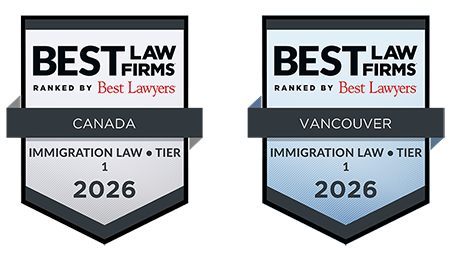As of October 17, 2018, cannabis will now be legal for recreational use in Canada. The new laws permit individuals to possess, use and grow cannabis – also commonly referred to as marijuana or pot. While “recreational use” of “pot” will now be permitted in Canada, there are still many restrictions that apply. What does this mean for people coming to Canada whether to visit, work, study or live permanently?
The Federal government has provided for the legal possession of marijuana as set out in the Cannabis Act. The Act provides that an individual 18 years of age or older, may possess up to 30 grams of “licit” or legal cannabis and no more than four plants for cultivation. An individual can not possess ANY illicit cannabis, nor any budding plant in a public place. Trafficking, importation, distribution and production of cannabis for individuals are all prohibited except as described above. So, an adult is restricted as to how much cannabis they can lawfully possess and grow in the comfort of their own private property. The Act further provides that the Provinces and Territories will be responsible for determining how cannabis is sold in their jurisdictions and they have the added authority to set further restrictions such as:
- lowering the limits from lawful possession to less than 30 grams;
- increasing the minimum age for lawful possession to above 18 years of age;
- restricting the locations for personal use; and
- making further requirements for growing plants for personal use.
This means that individuals need to be aware of what the applicable laws are in each province or territory that they may be living in or visiting to ensure that the use of cannabis is permitted in that jurisdiction.
It is important to be aware of the difference between licit and illicit marijuana. Possession or cultivation of licit (legal) marijuana is permitted whereas possession or cultivation of illicit (illegal) marijuana will still attract criminal penalties. Transport of cannabis, even medically prescribed cannabis, across international borders remains illegal. In most countries possession of cannabis remains illegal and subject to a criminal conviction. Bringing legal marijuana into Canada from another country is not permitted nor is bringing legal Canadian marijuana into another country. While possession of cannabis for personal use is now permitted in Canada, carrying it across an international border is not and can result in either a Canadian or foreign criminal conviction. A criminal conviction or commission of an offence has serious consequences for both temporary residents (visitors, students, foreign workers) and permanent residents. A criminal conviction or a determination that a person has committed an offence (such as illegal possession in a foreign jurisdiction) can result in a person being found to being criminally inadmissible to Canada and denied entry for five years or more. It can also result in the loss of permanent residence status!
A further complication is the current legal status of cannabis possession or use in the United States. Several US states have legalized the personal use of marijuana including border states such as Alaska, Washington and Vermont. However, marijuana remains a prohibited drug in the US and possession of cannabis constitutes a federal criminal offence as does transporting it across the border. Whether purchasing lawful pot in British Columbia or in Washington State, bringing it across the border is illegal. Furthermore, the US government considers the possession or use of illicit drugs to be a crime of moral turpitude and border officials can impose a lifetime ban of entry into the United States. Even admitting to ever having used cannabis can result in being barred entry into the US – for life!
As Vancouver immigration lawyers we have noticed that while the laws in Canada for the use of recreational marijuana have changed, there is still a lot to be determined. Cannabis users are advised to proceed cautiously. Here are a few guidelines:
NEVER bring ANY form of cannabis across any international border.
If you do bring cannabis into Canada, be sure to DECLARE it to CBSA.
Do NOT use or purchase cannabis in ANY foreign jurisdiction, even US states which permit cannabis use. It still is a federal offence in the United States and Canadian border officials can determine that you have committed an offence and deny you entry to Canada – for more than 5 years.
Be sure that you are familiar with the laws for using cannabis in any province or territory that you are visiting.
Never give or share cannabis with anyone under the age of 18.





